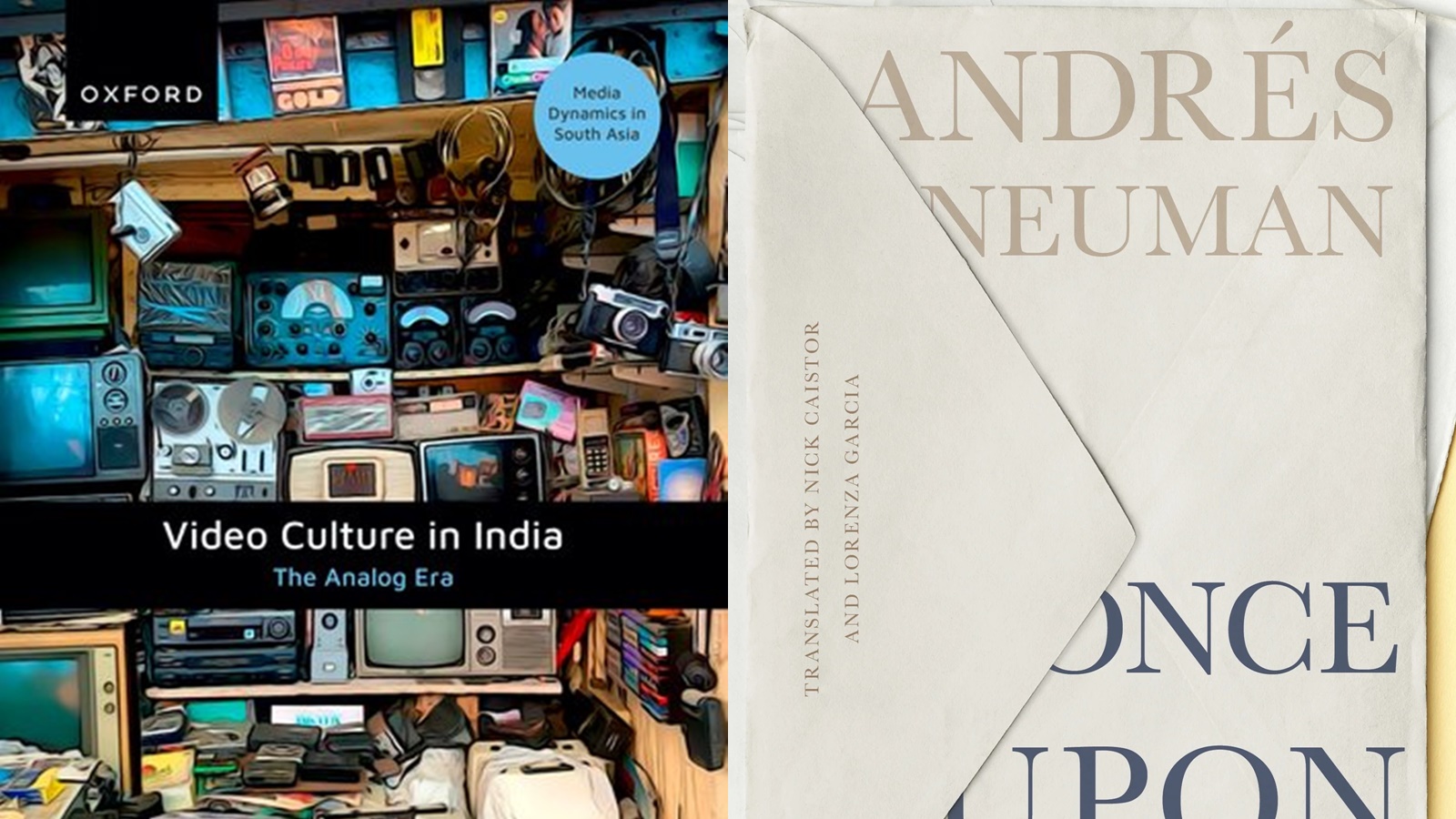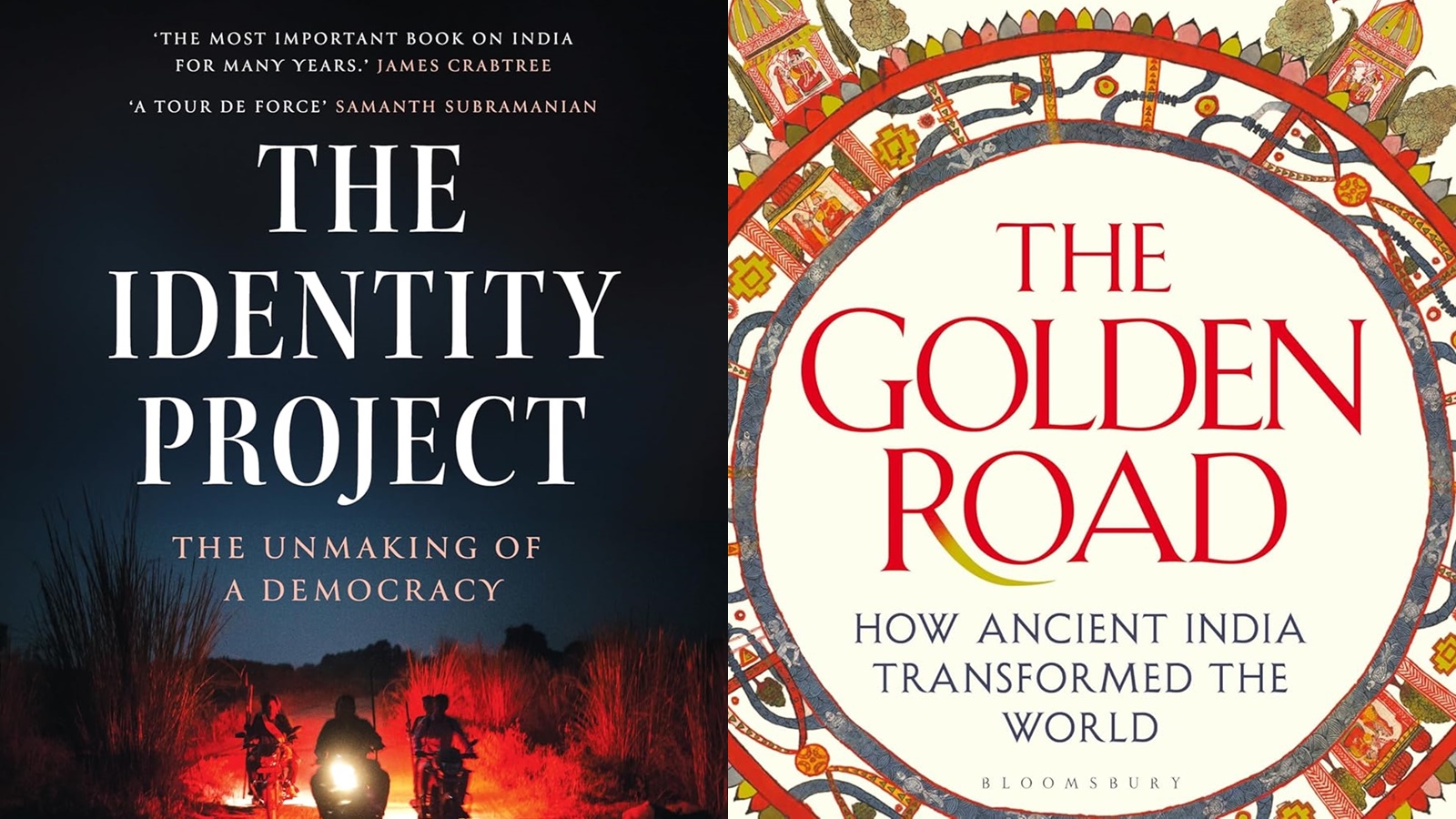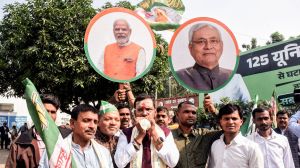Books to read: How Indian ideas changed the world
From a book on the video revolution of 1980s India to a new work by acclaimed Argentinian writer Andrs Neuman, here are all the latest publications you should read
 What We Talk About When We Talk About Crime (Source: Amazon)
What We Talk About When We Talk About Crime (Source: Amazon)Video Culture in India (Rs 1,395, Oxford University Press) by Ishita Tiwary is an ode to the video. Long before WhatsApp enabled misinformation to spread at lightning speed and torrent websites listed films within seconds of theatrical release, the rickety videotape and unwieldy camera were used to archive and distribute a society’s culture, slowly, in all situations from weddings to battlefields. Such artifacts of analogue video are mostly available to historians and enthusiasts today, but have been retrieved in this labour of 10 years by media scholar Tiwary, who has compiled interviews, pictures and history to detail the explosion of India’s videographic imagination from the 1980s to today.
Once upon Argentina (Rs 1,500, Open Letter Books) by Andrs Neuman is a family history of the acclaimed Argentinian writer that’s somewhere between fact and fiction. He tells the story of growing up as a football-obsessed boy in Buenos Aires, his madcap relatives (scientists, musicians, union activists) and the time the writer moved to Spain as a teenager with his family. Politics is never far away in this story of purpose and polemics, as Argentina’s 20th century experience with coups, military rule and book burning become the combined hearth for this family to begin smouldering.
 Video Culture in India and Once upon Argentina (Source: Amazon)
Video Culture in India and Once upon Argentina (Source: Amazon)
What We Talk About When We Talk About Crime (Rs 734, Notting Hill Editions) is an account of seven criminal ‘cases’ in British history by noted criminologist Jennifer Fleetwood. She aims to unpack the relationship between society and its criminals, one that has undergone a recent revolution in the form of documentaries, films and books about crime – true and fake. The work explores the effect of scandal on the psyche and why confession is attractive to the wary listener, as well as why that interest has shot up in recent decades around the world.
 The Identity Project and The Golden Road (Source: Amazon)
The Identity Project and The Golden Road (Source: Amazon)
The Identity Project (Rs 899, Westland) by journalist and writer Rahul Bhatia is one of the most anticipated non-fiction books of the year. It dives deep into Hindutva’s roots in the 19th century with the Arya Samaj, tracking its rise through the 20th century alongside the Rashtriya Swayamsevak Sangh and Bhartiya Jan Sangh, up to its open endorsement by the political class in the last 10 years. Many turning points in the relationship between the Indian state and its citizens are narrated, one of which is the night of December 15, 2019 when police officers stormed Jamia Millia Islamia’s campus to blind, cripple and maim unarmed students protesting the Citizenship Amendment Act.
The Golden Road (Rs 999, Bloomsbury) by William Dalrymple is a treatise on Ancient India’s influence in science, mathematics, religion and spirituality on the world. The famed historian began work on this project to, according to a preview early this year, “recover the centrality” of Indian trade before the Silk Route took off. Among the many subcontinental ideas that travelled the world, Buddhism and zero are two that are narrated in depth. The book also explores why such influence slowed after the 13th century due to, among other factors, the Turkish and Mongol invasions.


- 01
- 02
- 03
- 04
- 05





























